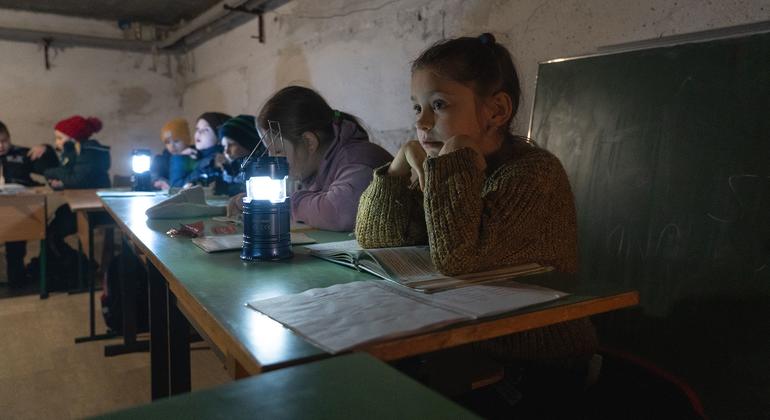In a recent announcement made by UNDP Administrator Achim Steiner on behalf of Secretary-General António Guterres, it was emphasized that the United Nations and its partners are actively providing critical humanitarian assistance to communities on the frontlines in Ukraine. However, there is a growing concern about the decrease in humanitarian funding amidst the significant scale of need in the country.
The ongoing conflict in Ukraine has resulted in the destruction of infrastructure, including homes, hospitals, energy, and water systems. As Russia continues its offensive, the need for support is now more crucial than ever. The UN and its partners have been working tirelessly to deliver aid, with 24 different UN entities and around 3,000 personnel collaborating with State and local authorities to address immediate needs and pave the way for recovery, reconstruction, and development.
To date, the UN has allocated $1.1 billion in recovery and development spending through the end of 2023, with plans to invest an additional $1 billion by the end of this year. These investments are focused on four key areas managed by the UN Resident Coordinator: support for businesses and entrepreneurs, investing in human development, implementing a comprehensive model of recovery planning, and responding to Government requests for technical assistance.
Steiner reiterated that the only sustainable solution to the conflict in Ukraine is a just, lasting, and comprehensive peace based on the principles of the UN Charter and international law. It is essential to prioritize peacebuilding efforts to ensure long-term stability and prosperity for the people of Ukraine.
Regina De Dominicis, the Regional Director for UNICEF, highlighted the critical importance of education in Ukraine’s recovery. She emphasized that the country’s future depends on educating children free from the impacts of war. The ongoing conflict has disrupted schooling for millions of Ukrainian children, with approximately 600,000 unable to access in-person education at all. The COVID-19 pandemic had already posed challenges to the education system before the invasion in 2022, further exacerbating the situation.
Data from 2022 shows that Ukrainian children are lagging behind in essential subjects like reading, math, and science, with the gap widening due to the prolonged conflict. Without increased investment and sustained funding for education, children and young people in Ukraine will struggle to access vital learning opportunities necessary for their recovery and the rebuilding of their communities.
In response to the environmental challenges faced by Ukraine, the UN Economic Commission for Europe (UNECE), the Organization for Economic Cooperation and Development (OECD), and the UN Environment Programme (UNEP) announced the creation of a Platform for Action on the Green Recovery of Ukraine. This initiative aims to support the country’s transition towards a low-carbon economy in line with international standards set by the UN. The platform will assist in accelerating policy reforms and promoting sustainable development in Ukraine.
The announcement of the Platform for Action on the Green Recovery of Ukraine comes ahead of a high-level conference on Ukraine scheduled to take place in Switzerland over the coming weekend. The conference will bring together representatives from 90 countries and…









